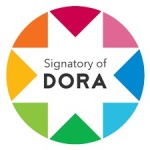Macroeconomic Composite Index for Economic Stability: A Kaldorian Analysis for the Algerian Economy
Abstract
The Algerian economy has known many changes in foreign trade policy and adopted many economic reforms in order to achieve the main goal of the economic policy (Economic Stability). In the present paper, we propose a macroeconomic composite index for economic stability to analyze and evaluate the implications of these changes on the economic stability of the country or the performance of the adopted economic policies since the 1980s, by a single index number per year, which we call the Economic Stability Index (ESI), through Kaldor’s four macroeconomic variables (GDP, General level of prices, Employment ,and External balances) based on “The Magic Square” and the quantitative formulation of the “Normalized Magic Square” presented by Medrano-B & Teixeira (2013). As a result, the best period that the Algerian economy has known was the period reflected by the highest value of the ESI, through achieving favorable results for the four indicators simultaneously.
Downloads
References
Billi, R., & Kahn, G. (2008). What is the Optimal Inflation Rate? Economic Review, 2, 5-28.
Bouhafs, H., & Darbal, A. (2007). The Impact of Economic Reforms on Economic Growth: A Case Study of Algeria. Les Cahiers du MECAS, 3(1), 330-344.
Couto Firme, V., & Teixeira , J. (2014). Index of Macroeconomic Performance for a Subset of Countries: A Kaldorian Analysis from the Magic Square Approach Focusing on Brazilian Economy in the Period 1997-2012. PANOECONOMICUS, 527-542.
Fard, O., & Masar, M. (2017). How valid are the aggregate supply and aggregate demand models in achieving the objectives of the magic square of Kaldor, the case of Algeria . Ph.D Thesis, 417. Algiers, Economic Sciences, Quantitative Economy, Algeria: University of Algiers 3. Writen in arabic.
Hadjene, O. (2012). Evaluation de la performance des politiques macro-économiques de l’Algérie à travers le carré magique de Kaldor. Journal of Economic Studies, 2(3), 190-215. Retrieved from https://www.asjp.cerist.dz/en/article/84724.
Kaldor, N. (1971). Conflicts in National Economic Objectives. The Economic Journal, 81(321), 1-16.
Krouch, S., & Ratoul, M. (2015). The search for the ideals of macroeconomic variables according to the magic square of Kaldor An applied attempt on the Algerian economy. Ph.D Thesis, 314. Chlef, Algeria, Economic Sciences, Algeria: Hassiba Benbouali University of Chlef.
Kučera, L. (2012). Economic Performance Evaluation -Kaldor's Magic Square-. 80-89. The Department of Economics and Management, Vysoká škola technická a ekonomická v Českých Budějovicích, České Budějovice: Odborny Seminar Katedry Ekonomiky a Managementu.
Lebza, H., & Difallah, M. (2016). The Influence of Monetary Policy on the Kaldor Variables Magic Box - Case Study of Algeria During the Period (1970- 2014) -. El-bahith Review, 17(17), 201-214. Retrieved from https://www.asjp.cerist.dz/en/article/34426. Writen in arabic.
Medrano-B, R., & Teixeira, J. (2013). A KALDORIAN MACROECONOMIC INDEX OF ECONOMIC WELFARE. Revista de História Econômica & Economia Regional Aplicada, 8(14), 1-7.
Messaoudi, Z. (2017). Evaluating the results of deepening the economic reforms programs in Algeria through Kaldor magic square: Study for the period 2001-2016. Algerian Review of Economic Development, 4(6), 215-228. Retrieved from https://www.asjp.cerist.dz/en/article/26158. Writen in arabic.
Mihoub , M., & Berkan, Y. (2016). The determinants of macroeconomic stability in Algeria under economic reforms and economic recovery programs. Revue des Science Economiques, de Gestion et Science Commerciales, 10(16), 14-29. Retrieved from https://www.asjp.cerist.dz/en/article/12273. Writen in arabic.
Picek, O. (2017). The "Magic Square" of Economic Policy Measured by a Macroeconomic Performance Index. 32. New York, Department of Economics, USA: The New School for Social Research.
Saavedra-Rivano, N., & Teixeira , J. (2017). Magic Hypercube and Index of Welfare and Sustainability. EconomiA, 18, 88-97.
Teixeira, J. R., Sandi Pinheiro, D., & Silveira Vilasboas, A. E. (2015). Socioeconomic and Environmental Performance: A Composite Index & Comparative Application to the USA & China. Cadmus, 2(2), 146-164.
Copyright (c) 2021 HAMDINI Abdallah, GAIDI Khemissi

This work is licensed under a Creative Commons Attribution-NonCommercial 4.0 International License.















